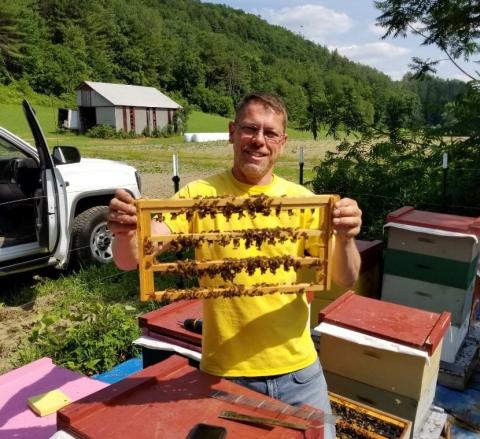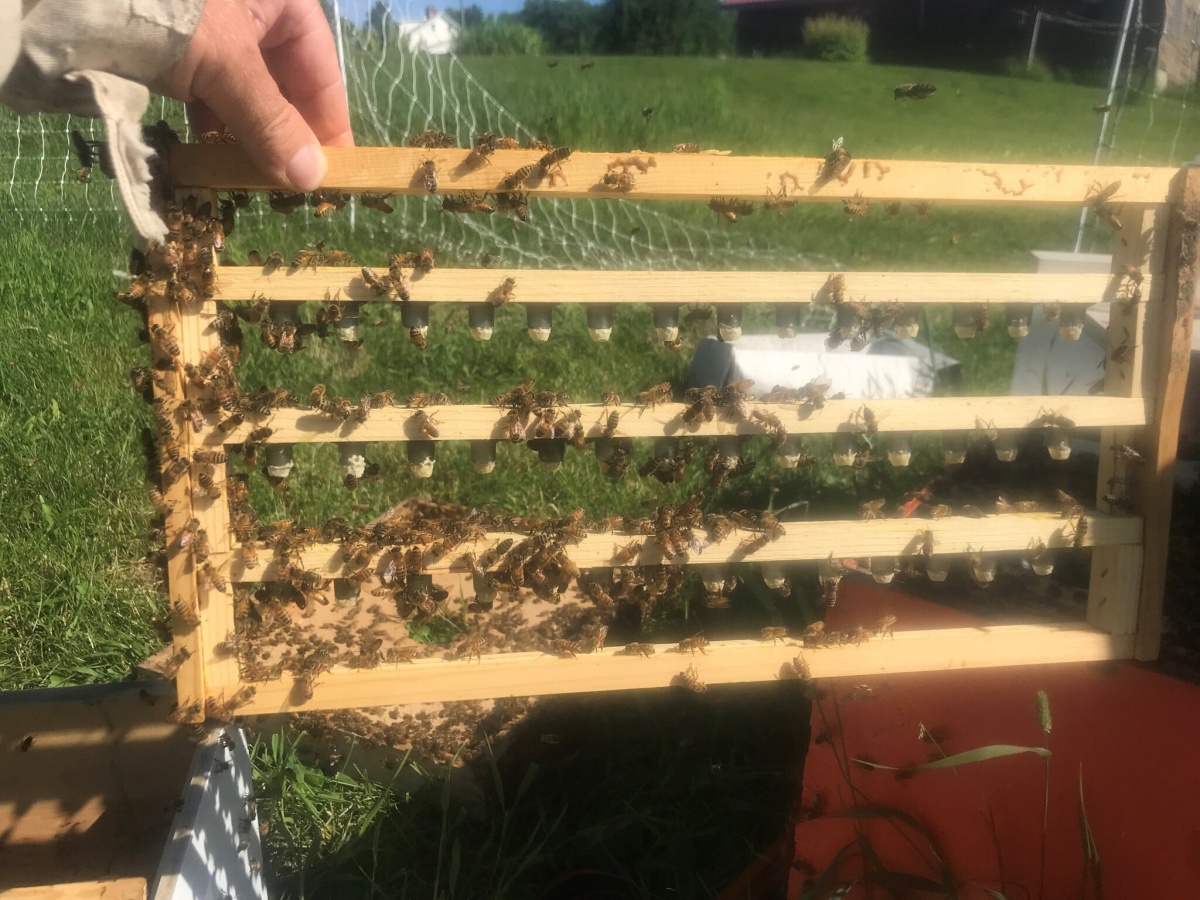Acclimating Queen Bees to New Hampshire’s North Country

As honey beekeeping interest spreads throughout New England communities, sound practices for hive health and regional adaptation remain a top priority. Many northern New Hampshire beekeepers have purchased queen bees from much warmer climates, making colonies more vulnerable to cold weather temperatures and other factors of climate, pests and diseases specific to the Northeast.
To help address these concerns, the New Hampshire SARE Professional Development Program (coordinated by Olivia Saunders, an Extension field specialist based out of Carroll County) piloted a queen rearing program in accordance with the New Hampshire Honey Bee Diagnostic Network. There was a need in this network to train advanced beekeepers to raise and sell their own queen bees adapted to the North Country region. These expert New Hampshire beekeepers, with at least five years of experience in beekeeping, convened at a workshop held at the Dyce Bee Laboratory at Cornell University.
Training local beekeepers how to raise and sell their own queens that are climatized to the North Country leads to greater resiliency for our local beekeeping scene— environmentally and economically making a positive impact to secure honey production and pollinator health for the local agricultural industry. The hive depends on the queen’s position to carry out colony health and quality honey production so it is important to ensure high overwintering survival rates and that queens can breed desired gene traits. It is a similar concept to saving seeds from season to season as far as adopting traits for the greatest chance of survival in a specific environment.
With instructors from Cornell, including expert Craig Olds from New Zealand, the group of six participants learned about the biology and reproductive qualities of honey bees before exploring queen rearing practices, cell starter and finishers, as well as the process of grafting new queens. Regardless of their prior experiences, everyone reported something new that they had learned and want to implement into their beekeeping practice.

Janice Mercieri of White Mountain Apiary in Littleton, New Hampshire, said the most impressionable takeaway from the weekend was that it “proved to me that queen rearing local is extremely important to the sustainability of our bee colonies in New Hampshire.” Janice reflected on how it also helped her realize additional equipment she needed in order to raise healthy queens and it assisted in planning how she sets up her several bee yards. Overall, it advanced her level of expertise in many different elements of running her apiary.
Janice has been beekeeping for eight years. Constantly studying and practicing, she has sold about a few dozen queens already this year and has 14 more in queen banks. She has also started giving hive tours, suiting up the public and taking them into the hives. As the president of the North Country Beekeeping Association, she is involved in various beekeeping classes and trainings for people looking to learn more about beekeeping and sharpen their skills working with the hives.
*Top photo: Shane Howard of Kearsarge Beekeepers Association showing off his grafted queen cells
Second photo: A participant in the NH Queen Network shows off a successful graft following a training event.